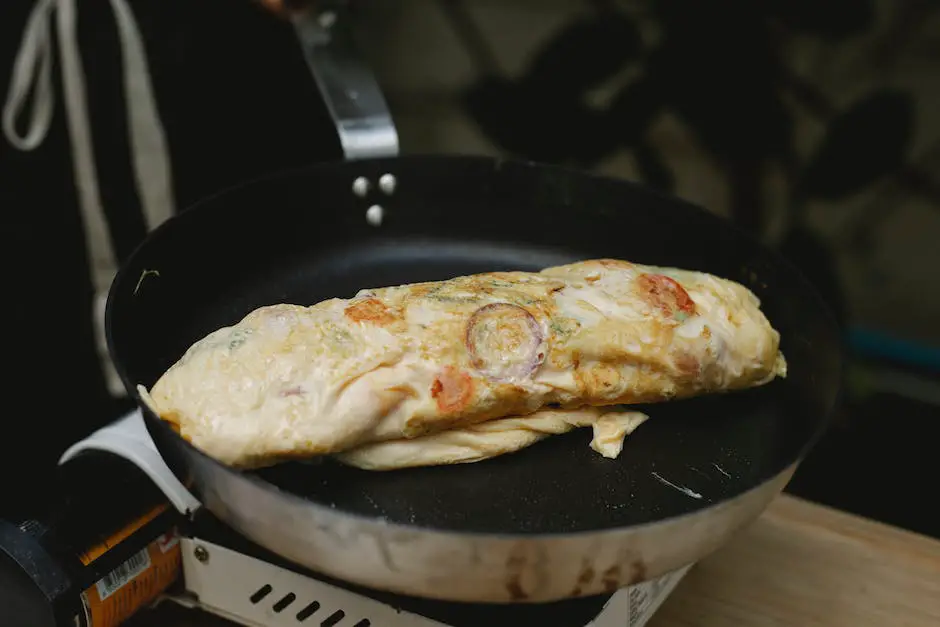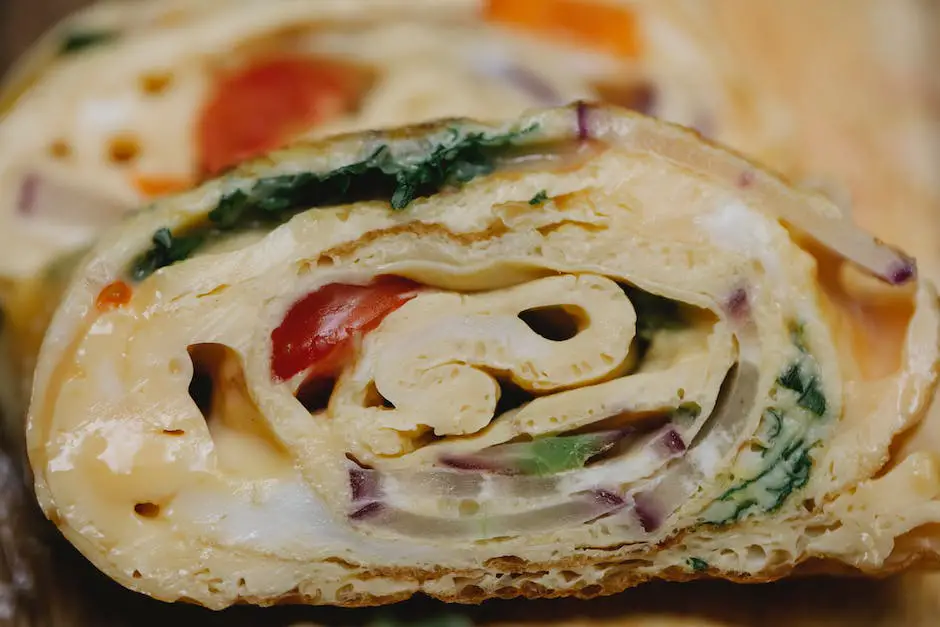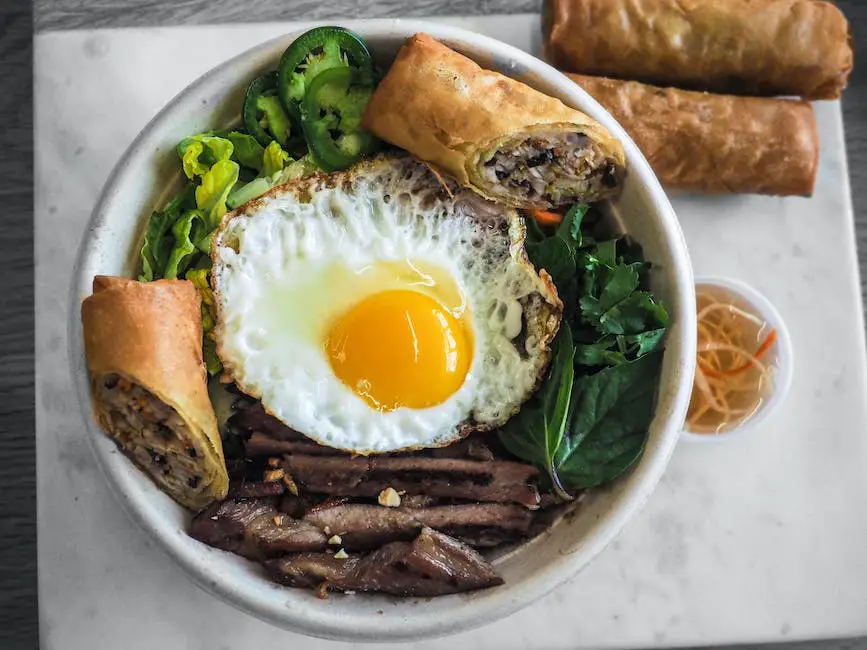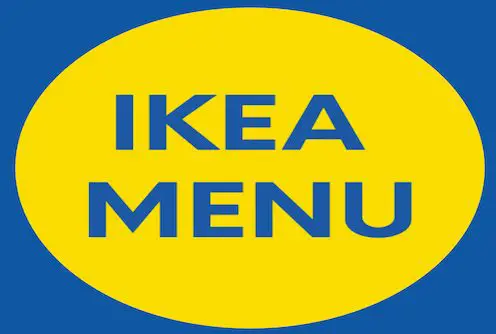When we’re talking about Asian cuisine, the ubiquitous egg roll simply can’t be left out of the conversation. Finding its origins concealed within the storied and complex culinary culture of Asia, the egg roll has managed to embed itself into the hearts (and taste buds) of individuals from all walks of life and geo-cultural backgrounds. From its history and customary preparation to its western interpretation, there’s an interesting narrative to unfold. In this respect, no conversation on the subject could possibly be comprehensive without delving into Costco’s take on this popular delicacy. How does it measure up against the traditional version and where does it stand when compared to homemade egg rolls? We’re about to embark on a flavorful investigation.
Understanding the Origin of Egg Rolls
Exploring the Origin of Egg Rolls
Believed to have been inspired by Chinese spring rolls, egg rolls are a delightful culinary concoction that has firmly established itself in Asian and Western gastronomy alike. Considered a staple in American Chinese cuisine, the defining feature of these delectable rolls is the usage of a wheat flour skin with eggs, which is then filled with a multitude of ingredients. These fillings may include diverse offerings such as cabbage, pork, bean sprouts, and mushrooms. The filled roll is then deep-fried, creating a crispy exterior and a hot, steamy interior that offers a flavor-packed experience in every bite.
The Role of Egg Rolls in Asian Cuisine
Across the Asian continent, variations of egg rolls adorn the menus of restaurants, street food stalls, and celebrations. Predominantly viewed as a side dish or appetizer, egg rolls often accompany main course meals, adding a textural contrast with their crackling exterior. In China, a close relative of the egg roll – the spring roll – is a traditional dish for the Spring Festival, symbolizing wealth and prosperity for the year ahead due to its resemblance to gold bars. From Korea’s popiah-style rolls to Filipino lumpia, the shared concept of a savory filling encased in a pastry wrap unite these culinary creations under the moniker of ‘egg roll’.
The Journey to Western Stores: Costco’s Hand in Popularizing Asian Cuisine
The advent of globalization has seen the dispersion of egg rolls far beyond their originating lands, seizing a spot in Western menus. Owing to their intoxicating fusion of textures and flavors, egg rolls have risen to the status of a beloved snack food in the United States. A prime example of their popularity is the demand they have gained in wholesale retailers like Costco.
Costco Wholesale Corporation, an American multinational corporation recognized for providing a broad spectrum of merchandise, has excelled in the department of ready-to-eat meals and snack foods. In moving with the trend of global food culture, Costco has incorporated a selection of Asian cuisines in its array of prepared food sections, with the egg rolls being a noticeable addition.
Modeling their version on the traditional essence of egg rolls, Costco employs ingredients such as chicken, cabbage, carrots, and onions, encapsulated within a thin, crispy wrapper. While authenticity can be subjective when it comes to the adaptation of traditional dishes, Costco’s egg rolls offer a taste reminiscent of authentic Asian flavor profiles. This blend of a time-honored recipe with the convenience of a quick meal makes Costco egg rolls an appealing choice for many.
Reimagining Tradition: Costco’s Take on Egg Rolls
In an ever-evolving culinary landscape, egg rolls have managed to maintain their traditional essence while introducing a spectrum of innovative fillings and appearances. From the fiery appeal of kimchi egg rolls to the rich allure of apple pie-filled dessert egg rolls, this age-old tradition persists in sparking foodie imagination. Amid these contemporary adaptations, the egg roll offering by Costco testifies to the enduring charm of this Asian delight.

Review of Costco’s Egg Rolls
The Inside Story: Ingredient Selection and Preparation of Costco’s Egg Rolls
A staple in the freezer section, Costco’s egg rolls provide a readily accessible and swift meal solution for customers. They primarily consist of cabbage, carrot, and onion, all finely minced and seasoned with soy sauce and an assortment of spices. Depending on the variation, they may also include fillings like mushrooms or sprouts from mung or soybeans. The wrap, essentially a blend of flour, water, and salt, encases these fillings.
Where these egg rolls diverge from their traditional counterpart is in their method of preparation. Typically, egg rolls are handcrafted and often deep-fried to achieve a crisp exterior and golden-brown finish. In contrast, Costco’s egg rolls arrive pre-cooked and frozen, meant for a quick heat-up in a microwave or oven. While convenient, this method might not necessarily recreate the same texture and crunch that a freshly fried egg roll boasts.
Packaging and Taste: Costco’s Egg Rolls
Costco’s egg rolls come in a large box and are individually wrapped, which can be particularly handy for portioning or for those who do not wish to cook all the egg rolls at once. In terms of taste, the egg rolls are generally well-received. They feature well-seasoned vegetable filling and the wrapper, although not as crisp as traditional ones, holds up well and provides good texture.
Nonetheless, some consumers note that Costco’s egg rolls could be improved upon. They sometimes lack the rich, complex flavors generally associated with authentic Asian cuisine. As is often the case with ready-to-eat food options, the limitations of industrial production and long storage times can affect the freshness and flavor of the product.
A Glimpse at Authentic Asian Cuisine: The Case of Costco’s Egg Rolls
The concept of ‘authenticity’ in food can be a subjective matter, often depending on personal experience, cultural heritage, and individual taste. Costco tailors its egg rolls to appeal to a wide-ranging customer base. As such, their flavor profile may not be as unique or specific as those found in conventional Asian cuisine. Nevertheless, these egg rolls incorporate classic Asian ingredients, such as cabbage, carrot, and onion, and are seasoned with traditional Asian condiments, including soy sauce.
However, a crucial point to note is that while Costco’s egg rolls possess the vital features of traditional egg rolls, their preparation method and taste may vary from a freshly made egg roll. Accordingly, Costco’s egg rolls serve as a convenient, generally flavorful, and easily accessible gateway to Asian cuisine. Yet, they may lack the depth of flavor and texture found in handmade egg rolls crafted in an authentic Asian kitchen.

Comparative Study of Store-bought and Homemade Egg Rolls
An Analysis: Comparing and Contrasting Costco’s Egg Rolls with Homemade Varieties
For those yearning to savor egg rolls, two main options exist – buying ready-to-eat products from stores like Costco, or making them at home. Costco’s egg rolls have gained widespread appreciation for their convenience factor and touch of authenticity. Meanwhile, homemade versions grant the flexibility to customize ingredients and exert greater control over the preparation process.
Pros and Cons
Store-bought egg rolls offer convenience that is unmatched. By taking a trip to Costco, one can quickly and easily secure these tasty Asian inspired items, without the hassle that comes with cooking. They are ideal for those who may not have the time or culinary skill to prepare egg rolls from scratch. What’s more, Costco egg rolls are lauded for their tasty and authentic profile, judged by many as a close match to traditional Asian flavors.
However, the downside of the Costco egg rolls lies in their potential lack of freshness and the inability to adjust the ingredients to one’s preference. Store-bought egg rolls are typically frozen and packaged to last, which might compromise the freshness and quality compared to homemade versions.
On the other hand, homemade egg rolls allow for customization according to one’s tastes and dietary needs. This gives an advantage to those with specific preferences or dietary restrictions. There is the added benefit of guaranteed freshness, as the rolls are made and served almost instantaneously. However, the process of making egg rolls can be labor-intensive and time-consuming. The varied and specific ingredients can also be harder to procure compared to the readily available store-bought versions.
Nutritional Information
From a nutritional standpoint, Costco egg rolls contain a balanced composition of vegetables and proteins. According to the nutrition label, they contain about 140 calories per serving and are relatively low in saturated fat. However, those conscious about sodium intake may need to consider that the Costco egg rolls do contain noticeable levels of sodium.
Homemade egg rolls, meanwhile, afford the flexibility to control the nutritional content. By opting for low-fat and low-sodium ingredients, for example, one can make healthier egg rolls. But given the variance in ingredients and preparation methods, the exact nutritional content of homemade egg rolls can be quite variable.
Cost-Effectiveness and Convenience
Store-bought egg rolls from Costco score points for cost-effectiveness. One can secure a decent quantity of egg rolls at a relatively low cost. They are an affordable convenience food that can be prepared any time the craving hits.
Homemade egg rolls, however, can be potentially more costly depending on the type and quantity of ingredients used. On the flip side, making egg rolls at home provides a satisfying cooking experience and allows for quality time spent with family or friends.
In the end, the choice between Costco egg rolls and homemade ones will ultimately depend on one’s taste, budget, and convenience preference. Both have their unique strengths, and the decision to buy or make egg rolls offers different benefits depending on individual preferences.

As our detailed examination draws to an end, we find that the real underside of the egg roll’s success stems from the interplay of authenticity, convenience, and taste. While tradition throbs at the heart of the homemade egg roll, injecting authenticity into every mouthful, the siren call of convenience that resounds from store-bought options like Costco isn’t an easy one to ignore. The choice between the two teeters on the fulcrum of personal preferences, your value on authenticity, and time accessibility. We peel back from the conversation with a newfound appreciation for egg rolls, whether we’re grabbing a pack from the bustling aisles of Costco or kneading the dough at home to encapsulate a filling of choice. As with all great food, the beauty lies not just in the eating, but in the understanding and appreciation of its journey.


